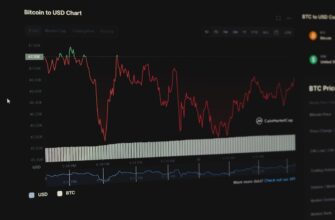- Understanding NFT Taxation in 2025: The Core Principles
- How NFT Profits Are Taxed: Short-Term vs. Long-Term Capital Gains
- Calculating Your NFT Tax Liability: A 3-Step Framework
- Reporting NFT Activity: IRS Forms & Compliance
- 2025 Tax Law Projections: What Might Change
- 4 Strategies to Minimize NFT Taxes in 2025
- NFT Tax FAQs: Your Top Questions Answered
- Conclusion: Stay Proactive in 2025
Understanding NFT Taxation in 2025: The Core Principles
As non-fungible tokens (NFTs) continue evolving into mainstream digital assets, one critical question looms for investors: Is NFT profit taxable in the USA in 2025? The unequivocal answer is yes. The IRS classifies NFTs as property—not currency—meaning all profits from sales, trades, or royalties follow capital gains tax rules. While 2025-specific regulations remain fluid, current frameworks provide clear guidance. This article breaks down how NFT taxation works, projected 2025 updates, and actionable strategies to stay compliant.
How NFT Profits Are Taxed: Short-Term vs. Long-Term Capital Gains
NFT taxation hinges on your holding period and income bracket. Here’s the breakdown:
- Short-Term Capital Gains: Apply if you held the NFT for ≤1 year. Profits are taxed as ordinary income (10%–37% in 2024, likely similar in 2025).
- Long-Term Capital Gains: For assets held >1 year. Rates are significantly lower (0%, 15%, or 20% based on 2025 income thresholds).
- Royalties & Licensing: Treated as ordinary income regardless of holding period.
Example: You buy an NFT for $5,000 and sell it 18 months later for $15,000. Your $10,000 profit qualifies for long-term rates. If your 2025 taxable income is $100,000, you’d owe 15% ($1,500) in federal tax.
Calculating Your NFT Tax Liability: A 3-Step Framework
- Determine Cost Basis: Purchase price + gas fees + minting costs.
- Calculate Gain/Loss: Sale price (minus transaction fees) – Cost Basis.
- Apply Holding Period: Classify as short-term or long-term.
Pro Tip: Use crypto tax software (e.g., CoinTracker, Koinly) to automate tracking across wallets and marketplaces.
Reporting NFT Activity: IRS Forms & Compliance
All taxable NFT transactions must be reported using:
- Form 8949: Details each sale/trade (date acquired, date sold, proceeds, cost basis).
- Schedule D: Summarizes capital gains/losses from Form 8949.
- Schedule 1 (Form 1040): Reports royalty income.
2025 Alert: Expect stricter reporting as the IRS implements Broker Information Reporting Rules for digital assets, requiring platforms to issue 1099 forms.
2025 Tax Law Projections: What Might Change
While no NFT-specific bills are confirmed, these 2025 scenarios are plausible:
- Higher Capital Gains Rates: Proposals to tax gains >$1 million at 39.6% could impact high-volume traders.
- NFT-Specific Rules: Potential classification as “collectibles” (28% max rate) if used for art/antiques.
- Stablecoin Reporting: Tighter scrutiny on USDT/USDC transactions to curb tax evasion.
4 Strategies to Minimize NFT Taxes in 2025
- Hold for >1 Year: Prioritize long-term holdings to slash rates by 50%+.
- Harvest Losses: Offset gains by selling underperforming NFTs (e.g., -$2k loss cancels +$2k gain).
- Donate Appreciated NFTs: Deduct fair market value and avoid capital gains tax.
- Use Self-Directed IRAs: Hold NFTs in crypto IRAs for tax-deferred growth (verify custodian rules).
NFT Tax FAQs: Your Top Questions Answered
Q: Is buying an NFT with cryptocurrency taxable?
A: Yes! Crypto used for purchases is treated as a sale, triggering capital gains/losses on the crypto’s value change.
Q: Are gas fees deductible?
A: Yes—add them to your NFT’s cost basis when buying, and subtract from proceeds when selling.
Q: What if I trade one NFT for another?
A: This is a taxable event. You must report gains/losses on the NFT you traded away.
Q: How are airdropped or free NFTs taxed?
A: Their fair market value at receipt is taxable as ordinary income.
Q: Can the IRS track my NFT wallet?
A: Yes. Blockchain is public, and exchanges report to the IRS under 2021 infrastructure laws.
Conclusion: Stay Proactive in 2025
NFT profits remain firmly taxable in 2025 under US law. While rates and reporting requirements may evolve, the core principle persists: Document every transaction, classify gains accurately, and leverage holding periods. Consult a crypto-savvy CPA to navigate complexities—especially with pending regulatory shifts. As the digital asset landscape matures, informed tax planning separates profitable collectors from penalized participants.








